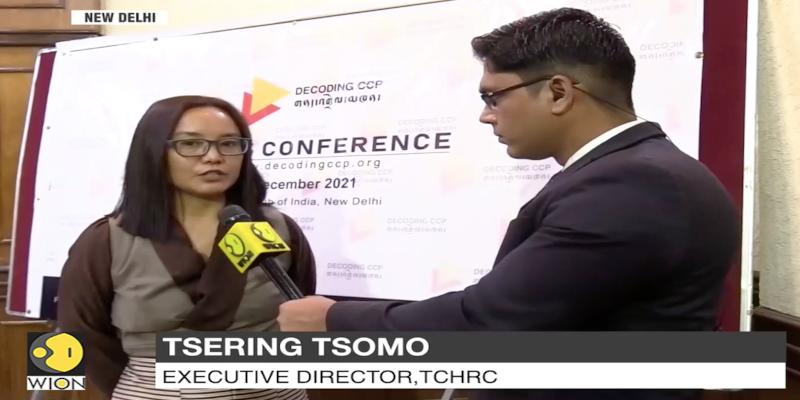Dharamshala, 5th November: We are all influenced by China’s rise, terrified by threatening language and unsure about our future. The Tibetan Centre for Human Rights and Democracy (TCHRD) on Thursday unveiled Decoding CCP, a new bilingual (English and Tibetan) website that strives to explain and decipher the meaning and connotations of important official jargon and slogans used by the Chinese Communist Party. The terminology and programs decoded by the website are not necessarily targeted at Tibetans, but rather those used by the CCP throughout China.
Investment advisers, wealth managers, global commodity suppliers, policy analysts, think-tankers, opinion leaders, climate campaigners, environmentalists, human rights defenders, development project designers, wildlife biodiversity campaigners, and democratic politicians will all benefit from the new decoding tool, according to the website.
The website purports to provide an “inside track” into what Chinese interlocutors mean, as well as explain the claimed “secret” meaning of phrases such as “Visit the People, Benefit the People, and Bring Together the Hearts of the People,” as well as expressions such as “Strike Hard Campaign.” The website states that “It doesn’t tell you what to think, you draw your own conclusions.”
The website wants user to know that “Decoding CCP takes care not to propose counter-propaganda to China’s official propaganda” and “Decoding CCP entries avoid lecturing and instead unmask declamations riddled with unconscious biases and assumptions.”
Tsering Tsomo, director of TCHRD asserted during the unveiling of the website at the Press Club of India Thursday, “It is not just a glossary of literal translations. Decoding CCP will unpack the hidden assumptions, implicit meanings, likely impacts and consequences of the aggressive propaganda of the CCP”. She noted that more phrases and terms will be added to the website soon and that it will be turned into an app next year.
The TCHRD is a non-governmental organization based in Dharamshala, India that works to promote human rights and democracy in Tibet and among Tibetans in exile.

